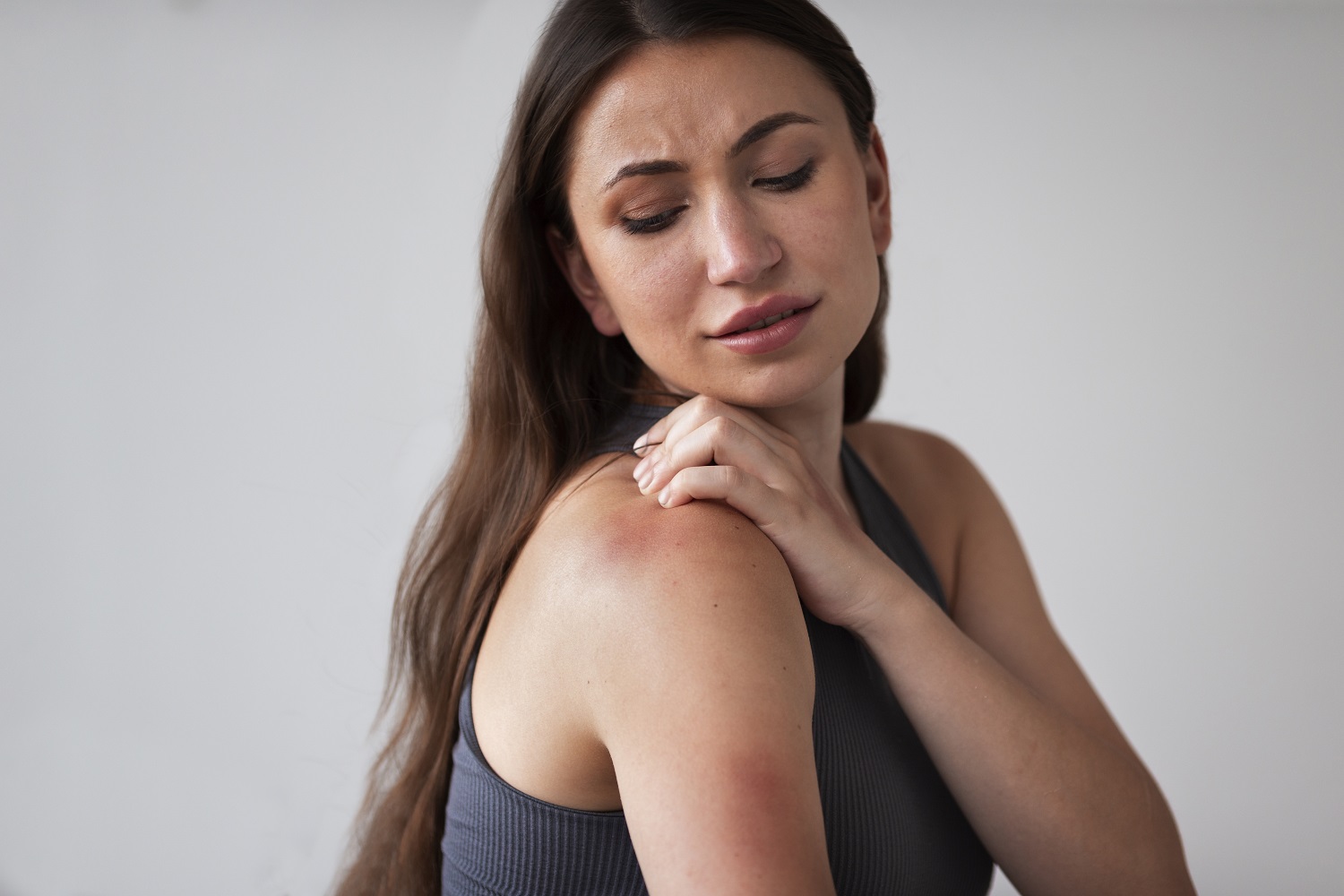Why do you have atopic dermatitis ?
Atopic dermatitis, also known as eczema, is a chronic skin condition that causes itching, redness, and flaking of the skin.
Genetically, people with atopic dermatitis have a mutation in the gene filaggrin, which leads to a weakened skin barrier that is more susceptible to allergens and irritants.
Environmental factors such as exposure to allergens, irritants, and stress can also trigger or exacerbate atopic dermatitis symptoms.
Common allergens include dust mites, pet dander, pollen, and certain foods, while irritants can include harsh soaps, detergents, and fabrics.
Psychological stress can also exacerbate symptoms by triggering the release of certain hormones and immune system chemicals.
What can you do about atopic dermatitis?
There are several derma-based treatments available for atopic dermatitis like:
- Topical Steroids: Topical corticosteroids are anti-inflammatory medications that are applied to the skin to reduce inflammation and itching. They are often used in combination with emollients to help repair the skin barrier.
- Topical Calcineurin Inhibitors: These medications are immunosuppressants that are applied to the skin to reduce inflammation and itching. They are often used in cases where topical steroids are not effective or not recommended.
- Barrier Repair Creams: These are emollients or moisturizers that help repair and strengthen the skin barrier, which can become weakened in people with atopic dermatitis. They can also help to reduce inflammation and itching.
- Wet Wraps: Wet wraps involve applying a layer of moisturizer to the skin and then covering it with a damp bandage or cloth. This can help to reduce itching and improve the effectiveness of topical medications.
- Phototherapy: Phototherapy involves exposing the skin to controlled doses of ultraviolet light, which can help to reduce inflammation and itching. This treatment is typically done in a doctor’s office or clinic.
- Systemic Medications: In severe cases, oral or injected medications may be prescribed to help manage symptoms and reduce inflammation.
It is important to work closely with a healthcare provider to determine the best treatment plan for your individual needs and symptoms.
Why choose iksana?
Welcome to Iksana, where exceptional care awaits you. Prepare to be captivated by the expertise of our Chief dermatologist, Dr. Aparajita Lamba, as she delves deep into the root cause of your concerns. With unwavering dedication, she not only unveils the intricacies of your treatment but also sheds light on the often overlooked aggravating factors. From the impact of your diet to the influence of your lifestyle choices, our comprehensive treatment plan goes beyond mere medicine, offering a supportive approach that nurtures your well-being.
Dr. Lamba’s relentless pursuit for knowledge and passion for exploring the latest breakthroughs in dermatology ensure that you receive nothing but the most effective solutions. At Iksana, we embrace the holistic view, caring for you as a complete individual—from the inside out. Our mission reaches far beyond the confines of superficial symptoms, empowering you to unlock newfound confidence and embrace your best self.
Join us at Iksana, where personalized care merges with innovation, setting the stage for a transformative journey towards a brighter, more radiant you. Let us guide you towards a world of boundless beauty and self-assurance.
medications may be prescribed to help manage symptoms and reduce inflammation.
It is important to work closely with a healthcare provider to determine the best treatment plan for your individual needs and symptoms.


